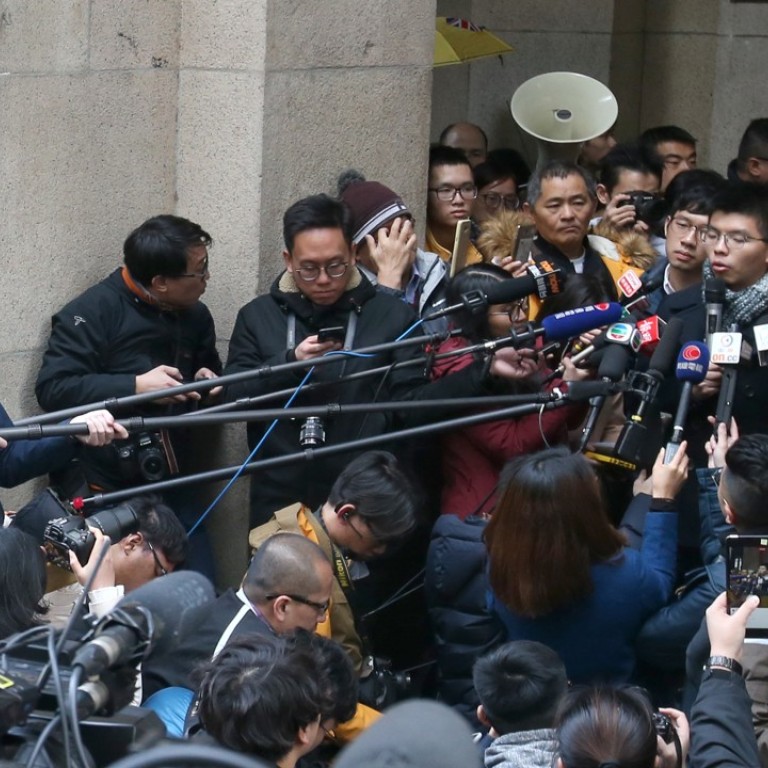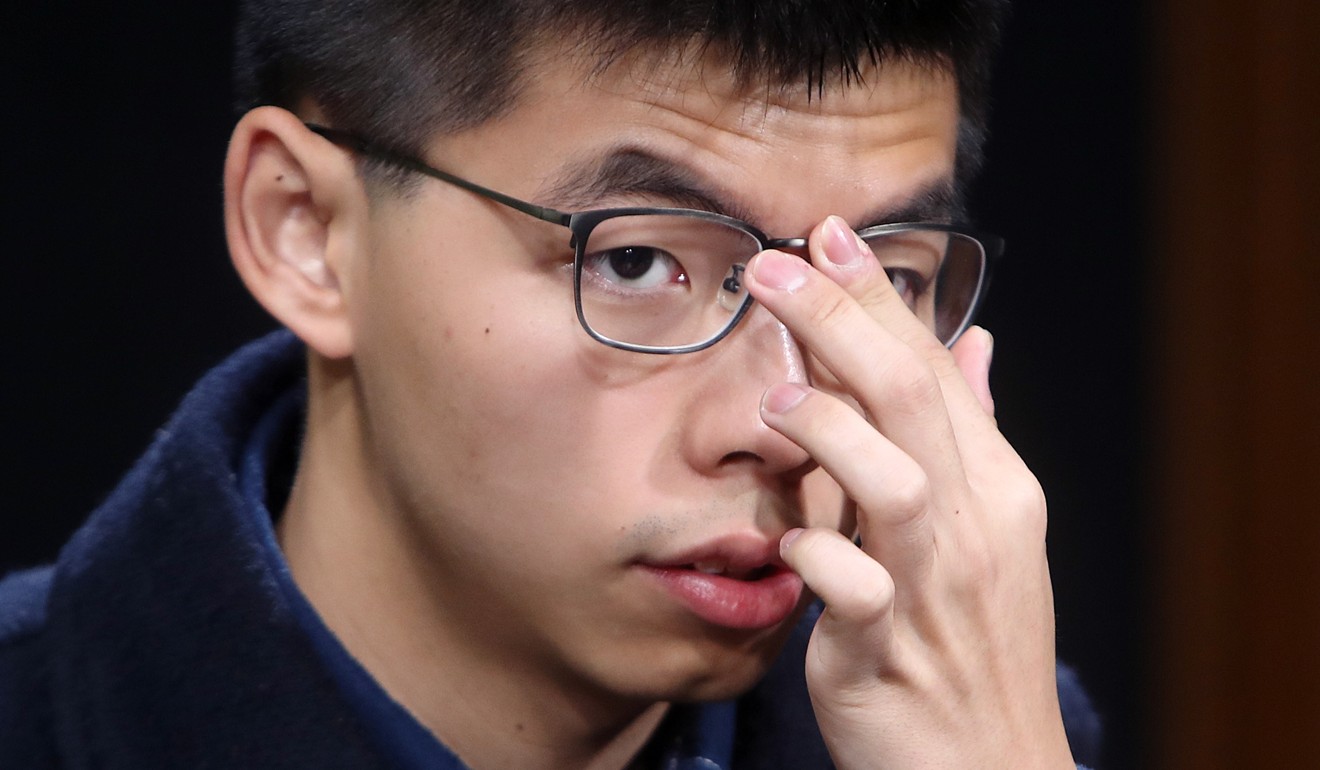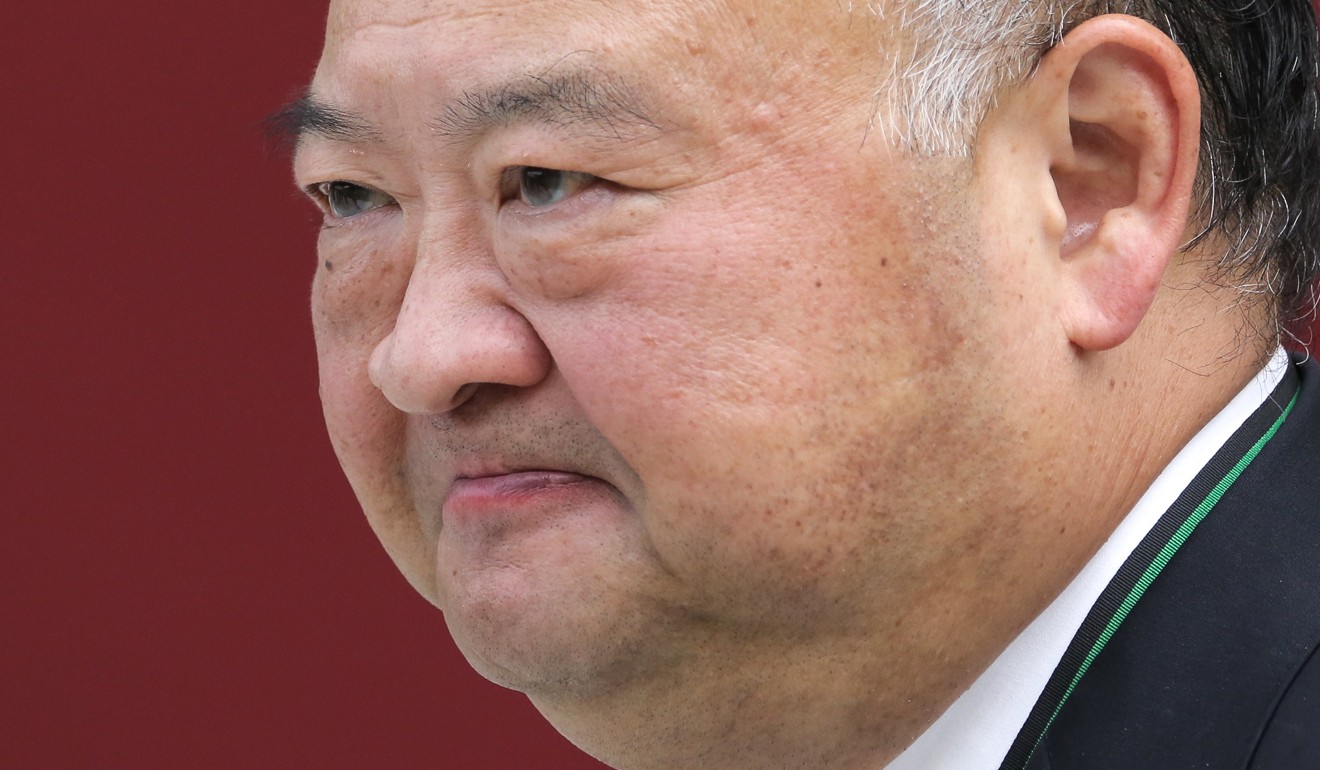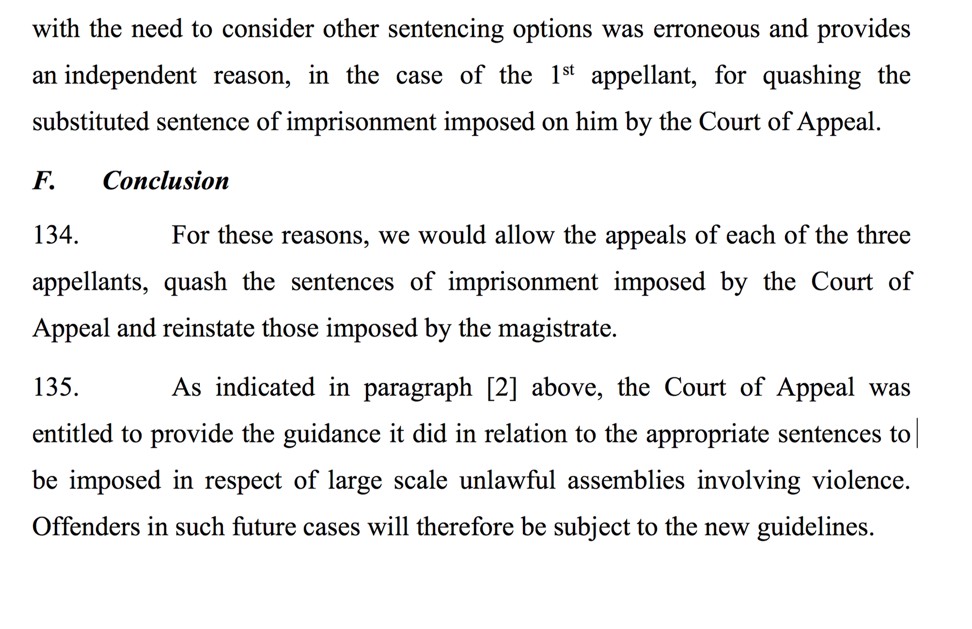
Hong Kong democracy activist Joshua Wong wins appeal against jail term over protest in run-up to Occupy
But Wong, along with Nathan Law and Alex Chow, stops short of claiming victory as ruling also entails tougher punishment for future protests involving violence
Student activist Joshua Wong Chi-fung and two of his comrades-in-arms won a bittersweet appeal on Tuesday as Hong Kong’s top court unanimously quashed their jail terms but upheld strict sentencing guidelines for future illegal protests.
Wong, Nathan Law Kwun-chung and Alex Chow Yong-kang walked free from the Court of Final Appeal after convincing five judges that their original non-custodial sentences for storming a government compound that effectively triggered the 2014 Occupy protests were not manifestly inadequate.
But the student leaders stopped short of celebrating their vindication as the highly anticipated ruling also endorsed new sentencing guidelines laid down by the Court of Appeal last August to impose tougher punishments in cases of unlawful assembly involving violence. The lower court had jailed the trio for six to eight months after the government complained that the original non-custodial sentences were too lenient.
The judges on Tuesday further ruled that civil disobedience, though recognised in Hong Kong, should carry “little (if any) weight” when the acts committed infringed upon criminal law and involved violence “since by definition that act is not one of civil disobedience”.
Opinion: why Hong Kong Occupy trio are my Nobel Peace Prize guys
Chief Justice Geoffrey Ma Tao-li said before handing down the 66-page judgment: “It was right for the Court of Appeal to send the message that unlawful assemblies involving violence, even the relatively low degree of violence that occurred in the present appeals, will not be condoned, and convictions will justifiably attract prison sentences.”

Outside court, 21-year-old Wong described the judgment as a “sugar-coated harsh punishment”.
“It’s not a time for celebration,” Wong said. “In the future ... maybe more and more activists will be locked up because of this harsh judgment.”
Law, 24, said he received the ruling with a heavy heart.
“Although our appeal was allowed, Hong Kong’s democratic movement has lost a battle,” he said.
The Department of Justice welcomed the ruling and drew attention to the judges’ disclaimer that they had only considered the applicable legal principles in considering the politically charged case.
“Hence, suggestions that the application for review was politically motivated were totally groundless and misconceived,” a department spokesman said.
What Agnes Chow’s election ban means for Joshua Wong and youth politics in Hong Kong
The controversial case centred on a September 26 protest that sparked the 79-day occupation of key roads by Hongkongers in the name of fighting for greater democracy. During the protest, Wong and Chow, 27, stormed the east wing forecourt of the local government headquarters, also known as Civic Square, along with unnamed others. Law incited others to follow suit.
The three were the first organisers convicted of unlawful assembly and incitement charges after leading the civil disobedience movement.
Joshua Wong says he was treated ‘like a dog’ while in prison
All three were initially spared jail, with Wong and Law getting community service and Chow a suspended prison sentence. But three Court of Appeal judges later unanimously granted a government review of those sentences and replaced them with jail terms.
In their ultimate appeal to the city’s top court, the trio’s lawyers argued last month that the Court of Appeal had overstepped the boundaries of what it was entitled to do and, in Wong’s case, neglected that he was a minor at the time of the crime.
On Tuesday, the Court of Final Appeal said in a judgment jointly penned by Ma, justices Roberto Ribeiro, Robert Tang Kwok-ching and Joseph Fok, and Lord Justice Leonard Hoffmann that “appeals to this court on points of sentencing principle are among the rarest of cases”.

The judges ruled that the lower appeal court had rightly fulfilled its responsibility to provide guidance in future sentencing, but that it should not have applied its new guidelines retrospectively to the trio.
They also noted that the trio were sentenced at a time when there was no appellate court guidance requiring prison terms for such cases, and community service orders or suspended sentences were within “the reasonable ambit of the magistrate’s sentencing discretion”.
China rebukes ‘meddling’ US congressmen over Nobel Peace Prize nomination for Hong Kong’s Joshua Wong
“The applications for [sentencing] review .. should have been refused,” the judgment continued. “The increase in sentences intimated by the Court of Appeal represented a sentence significantly more severe than the range established by the courts’ existing sentencing practice.”
The top court further ruled that the Court of Appeal had erred in neglecting its duty to consider all non-imprisonment sentencing options when punishing a minor, and that it provided “an independent reason” for quashing Wong’s jail term.
The judges also expressed disapproval at Court of Appeal vice-president Mr Justice Wally Yeung Chun-kuen’s comments about “an unhealthy wind” that had spurred others to break the law on the pretext of pursuing their ideals.
“The learned vice-president appears to have justified the increased sentences imposed on the appellants because their actions were thought … to be the result of the influence of other people encouraging them to break the law,” the judgment continued. “This is not a proper basis for sentencing since it ignores the culpability of the individual appellants and instead seeks to attribute the culpability of other persons to them.”


